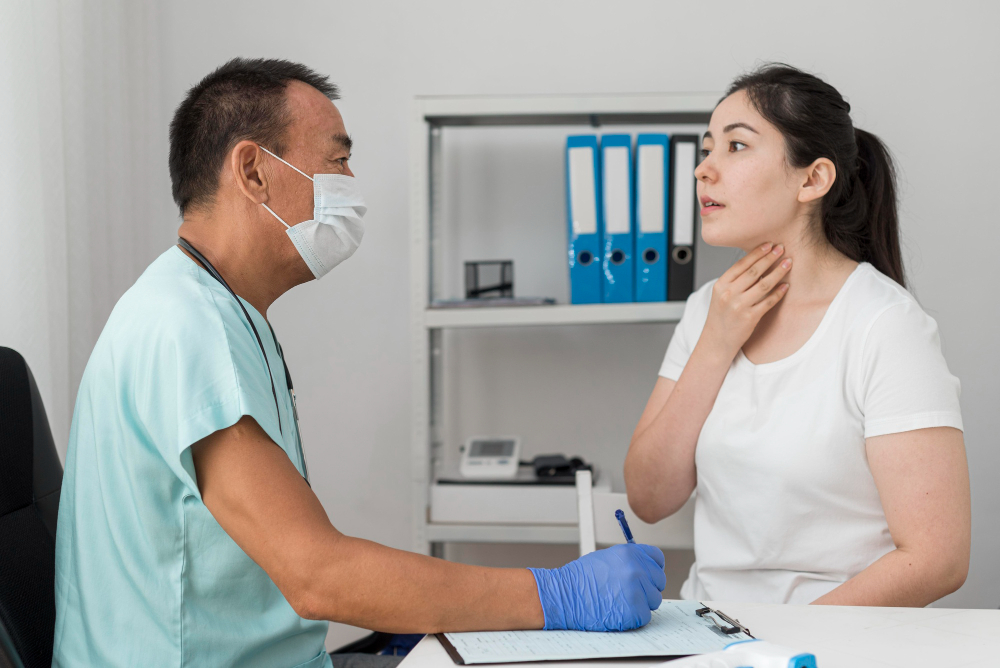Primary biliary cholangitis (PBC) is a progressive autoimmune liver disease that causes inflammation and damage to the small bile ducts in the liver. When PBC goes undetected or untreated, it can lead to serious liver scarring, liver failure, and the need for a liver transplant, so it is vital to understand the risk factors and warning signs of the disease. The disease was once known as “primary biliary cirrhosis,” but PBC patient advocacy groups and medical experts decided to change the name in 2015. Many people with PBC believed that using the word cirrhosis caused a false association with alcohol use and was often misleading since most people with PBC do not have cirrhosis (advanced liver damage).
Who is at risk for PBC?
Middle-aged women are most at risk for PBC. The disease is estimated to affect one in 1,000 women over the age of 40. Men can get PBC as well, but about 90% of patients diagnosed with PBC are women. PBC can run in families, and you might be at greater risk if you have a parent, sibling, or child who has been diagnosed with PBC. Additionally, at least half of patients with PBC also have another autoimmune disease; people living with conditions like Sjogren’s Syndrome, Raynaud’s phenomenon, and autoimmune thyroid disease should be especially mindful of their risk. The exact cause of PBC is unknown; however, PBC is not caused by drinking alcohol, and the disease is not contagious.
What are the symptoms and warning signs of PBC?
PBC can sometimes take years to present symptoms. Many symptoms are common to other diseases, making it difficult for doctors to diagnose.8 Many people who have PBC get diagnosed because their liver shows signs of damage during routine liver testing. Regular laboratory testing is a common way to see how well the liver is working and often includes measuring:
- albumin
- alkaline phosphatase (ALP)
- alanine aminotransferase (ALT)
- aspartate aminotransferase (AST)
- gamma-glutamyl transpeptidase (GGT)
- prothrombin time (PT)
- bilirubin
In people who show symptoms, the most common signs of PBC are fatigue and itching (sometimes called pruritus).
How is PBC diagnosed?
One of the critical markers healthcare providers first look at to diagnose PBC is a person’s ALP level.
- ALP sometimes called “alk phos,” is an enzyme found in the body.
- An abnormally high ALP level can be a sign of liver damage.
- In the early stages of PBC, abnormally high ALP can be an early warning sign to healthcare providers that PBC may be present.
It is also critical to test for antimitochondrial antibodies (AMAs) when PBC is suspected.
- AMAs are proteins made by the immune system.
- The presence of AMAs is a sign of PBC.
Some doctors perform a liver biopsy to confirm a diagnosis of PBC and to find out how far the disease has progressed. However, liver biopsies are usually not necessary to diagnose PBC.
How is PBC treated?
There is currently no cure for PBC, but there are two medications approved in the United States to help manage the disease and slow down the progression of liver damage. Medical guidelines recommend that healthcare professionals track ALP levels in patients with PBC every 3 to 6 months to measure disease progression and understand how well any prescribed medication is working. Because PBC is a rare disease, many patients seek treatment from gastroenterologists and hepatologists who specialize in managing liver disease.
Hope, Support, and Community
September is PBC Awareness Month, and Sunday, September 12th is International PBC Day. If you think you or a loved one are at risk, now is a great time to learn more. PBC Awareness Month also provides an opportunity for people who have been diagnosed with the disease to celebrate the achievements of the PBC patient community and grow awareness of PBC. If you are not sure where to begin, talk to your gastroenterologist about your risk of PBC and ask about your most recent ALP test results.
Patient Resources:
PBC information from the American Liver Foundation
The LivingwithPBC website and Facebook page (developed by Intercept Pharmaceuticals)
PBC information from Healthy Women
Article Sources:
[1] National Institute of Diabetes and Digestive and Kidney Diseases. Primary Biliary Cholangitis (Primary Biliary Cirrhosis). https://www.niddk.nih.gov/health-information/liver-disease/primary-biliary-cholangitis. Last accessed June 2021.
2 Beuers U, Gershwin ME, Gish RG, Invernizzi P, Jones DE, Lindor K, Ma X, Mackay IR, Parés A, Tanaka A, Vierling JM, Poupon R. Hepatology. 2015 Nov;62(5):1620-2.
3 Hirschfield GM. Best Pract Res Clin Gastroenterol. 2011 Dec;25(6):701-12.
4 Poupon R. J. Hepatol. 2010;52(5):745-758.
5 Lindor KD. Hepatology. 2019 Jan;69(1):394-419.
6 American Liver Foundation. Have PBC? You May Be at Risk for Another Autoimmune Disease. Available at https://liverfoundation.org/you-may-be-at-risk-for-another-autoimmune-disease/. Last accessed June 2021.
7 National Organization for Rare Disorders. Primary Biliary Cholangitis. Available at https://rarediseases.org/rare-diseases/primary-biliary-cholangitis/. Last accessed June 2021.
8 PBCers Organization. What is PBC? Available at https://pbcers.org/what-is-pbc/. Last accessed June 2021.
9 Hirschfield GM et al. Gut. 2018;0:1-27.
10 Younossi ZM et al. Am J Gastroenterol 2019;114:48–63
11 Trivedi PJ et al. Hepatology. 2016 Feb;63(2):644-59.
12 URSO Forte Prescribing Information. https://www.accessdata.fda.gov/drugsatfda_docs/label/2013/020675s022lbl.pdf. Last accessed June 2021.
13 OCALIVA Prescribing Information. https://www.interceptpharma.com/wp-content/uploads/2021/05/US-Package_Insert-26May2021-VV-REG-037160.pdf. Last accessed June 2021.
14 American College of Gastroenterology. What is a gastroenterologist? Available at https://gi.org/patients/gi-health-and-disease/what-is-a-gastroenterologist/. Last accessed June 2021.
15 American Liver Foundation. Newly Diagnosed with Primary Biliary Cholangitis: Doctors Offer Advice. Available at https://liverfoundation.org/newly-diagnosed-primary-biliary-cholangitis-doctors-offer-advice/. Last accessed June 2021.
16 VeryWellHealth. What is the role of a hepatologist? Available at https://www.verywellhealth.com/hepatologist-1759946. Last accessed June 2021.


